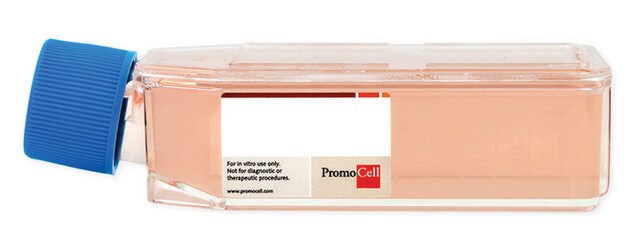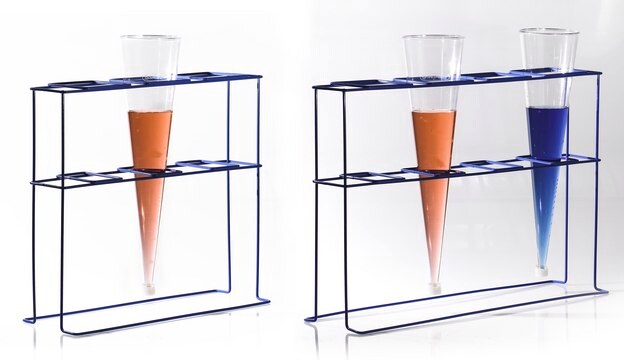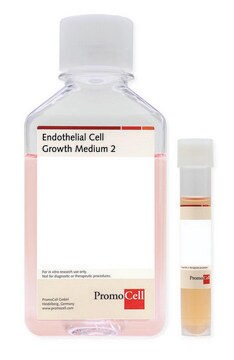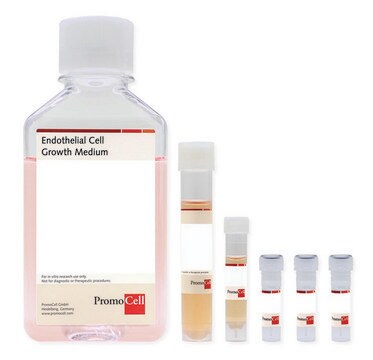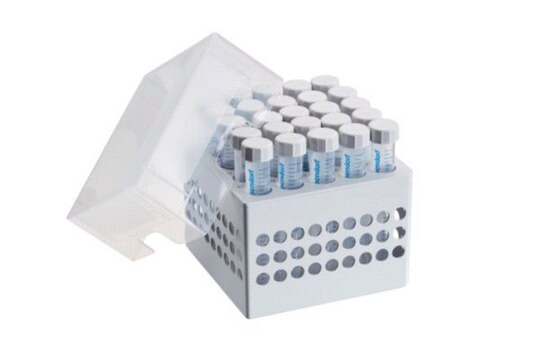C-12255
Human Umbilical Vein Endothelial Cells (HUVEC)
Pre-screened, 500,000 proliferating cells
About This Item
Empfohlene Produkte
Biologische Quelle
human umbilical cord vein
Verpackung
pkg of 500,000 cells
Morphologie
( endothelial)
Methode(n)
cell culture | mammalian: suitable
Versandbedingung
ambient
Lagertemp.
room temp
Allgemeine Beschreibung
Ursprung der Zelllinie
Anwendung
Komponenten
Qualität
Warnhinweis
Subkultur-Routine
Sonstige Hinweise
Empfohlene Produkte
Haftungsausschluss
Lagerklassenschlüssel
12 - Non Combustible Liquids
WGK
WGK 2
Flammpunkt (°F)
Not applicable
Flammpunkt (°C)
Not applicable
Hier finden Sie alle aktuellen Versionen:
Analysenzertifikate (COA)
Leider sind derzeit keine COAs für dieses Produkt online verfügbar.
Wenn Sie Hilfe benötigen, wenden Sie sich bitte an Kundensupport
Besitzen Sie dieses Produkt bereits?
In der Dokumentenbibliothek finden Sie die Dokumentation zu den Produkten, die Sie kürzlich erworben haben.
Protokolle
Cell culture protocol: the endothelial cell transwell migration and invasion assay used to study angiogenesis and cancer cell metastasis. Explore over 350 PromoCell products.
Verwandter Inhalt
Cell culture protocol: the endothelial tube formation assay to study angiogenesis using HUVECs and other endothelial cell types. Explore over 350 PromoCell products.
Unser Team von Wissenschaftlern verfügt über Erfahrung in allen Forschungsbereichen einschließlich Life Science, Materialwissenschaften, chemischer Synthese, Chromatographie, Analytik und vielen mehr..
Setzen Sie sich mit dem technischen Dienst in Verbindung.